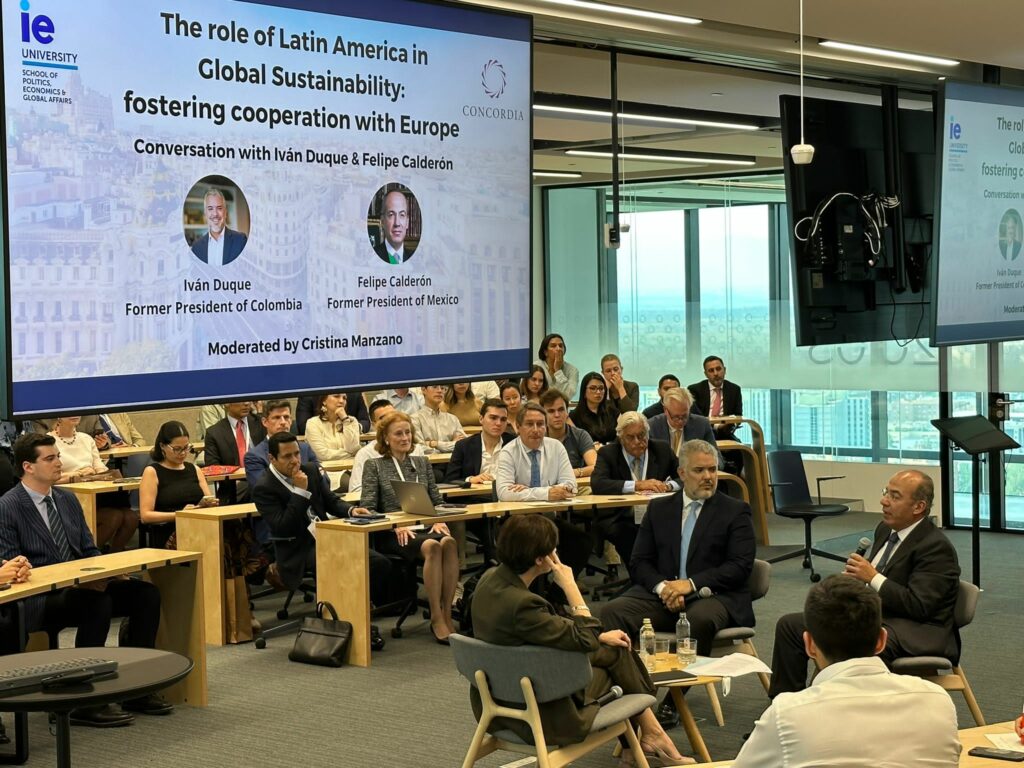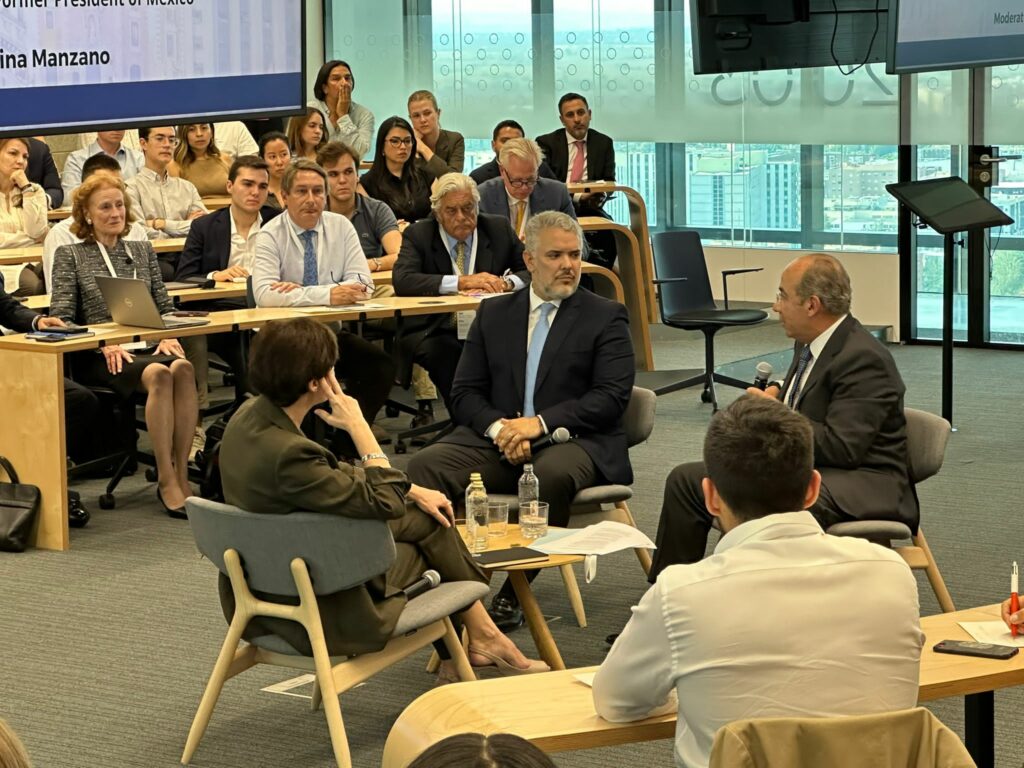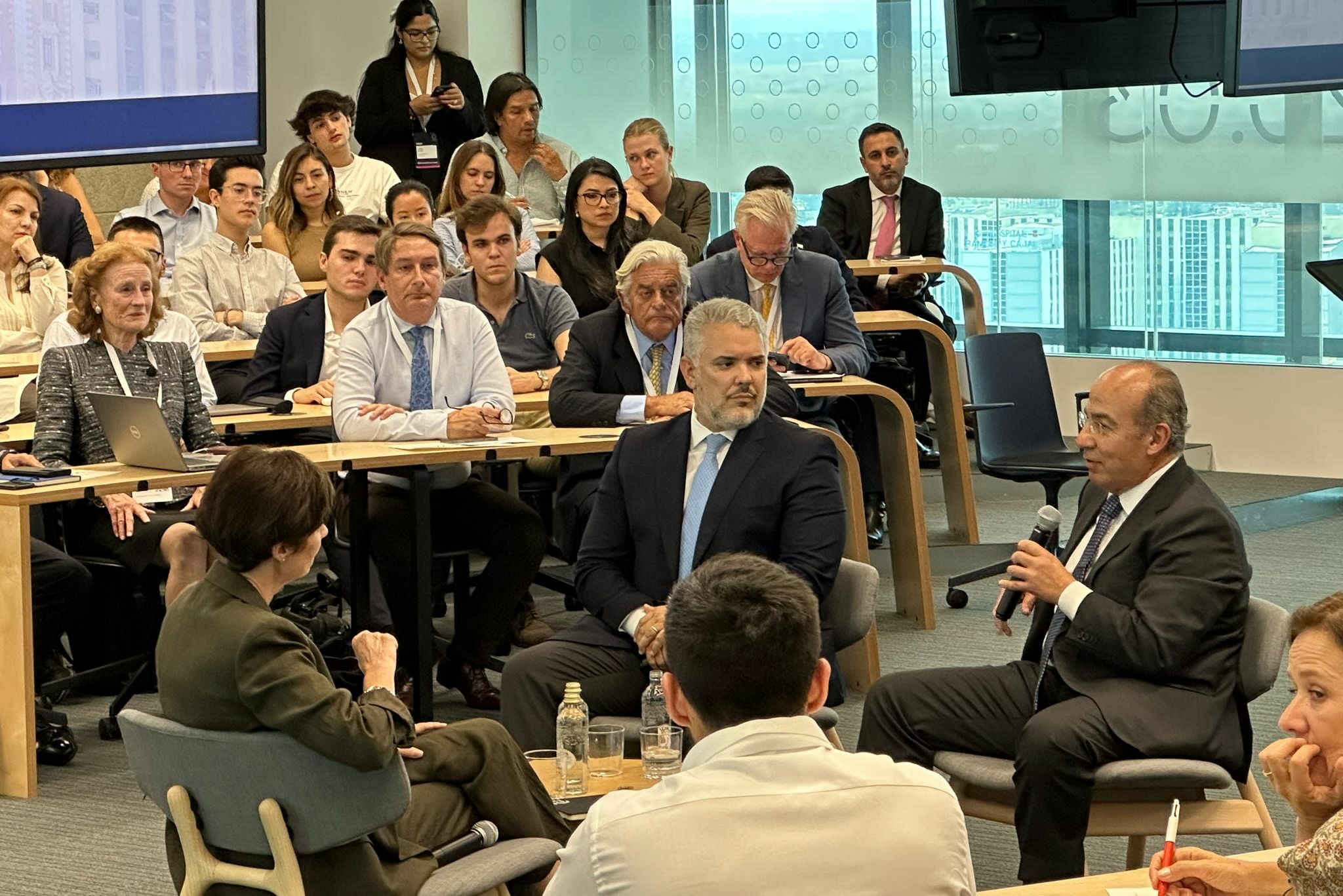On 15-16 June 2023, prominent decision makers from across Europe and the world gathered in Madrid, Spain for the 2023 Concordia Europe Summit. Two days of high-level closed-door conversations on the theme of Democracy, Security & Geopolitical Risk addressed some of the most pressing issues facing Europe, including cyber and energy security and diplomatic tools. The Bridge Tank was in attendance at the summit, represented by its president Joel Ruet and board member Raphael Schoentgen, who took part in a session on Europe’s renewable energy transition.
European sovereignty: Climate targets, autonomy & energy security
In the opening session of the Summit, Former European Commission (EC) President José Manuel Barroso testified to the intricate link between establishing binding climate targets and achieving energy security in Europe. Despite the challenges these climate targets represent, the EU 2020 Strategy was achieved by enlarging the problem from its environmental component to energy security, thereby winning over the EU’s new members as the EC launched infrastructure investments, he noted. This is an approach which has also been used by the US and India.
Putting the current discussion on the EU’s strategic autonomy in its geopolitical context, Othmar Karas, First Vice-President of the EU Parliament, noted that Russia’s aggression very much clinched the debate on the EU’s strategic autonomy and sovereignty, as well as on its defence strategy. Mr Karas stated that this debate was led “in a spirit of cooperation with NATO.”

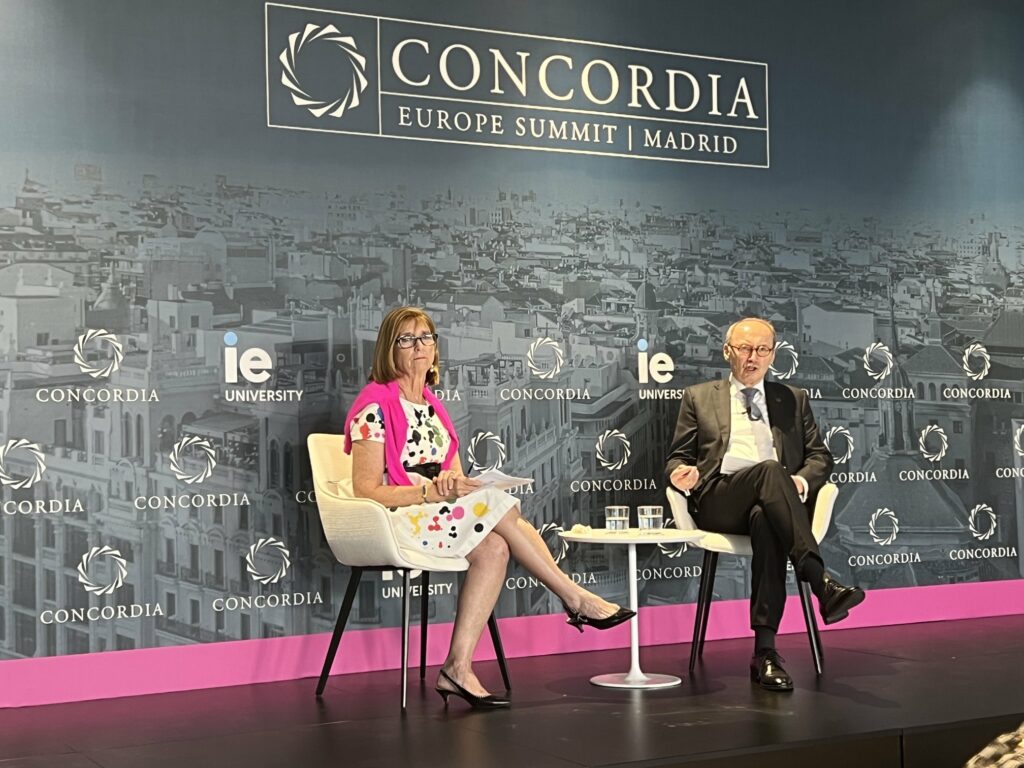

Connecting this issue with environmental challenges, this was an opportunity for The Bridge Tank’s president Joel Ruet to engage with the EU Parliament’s First VP on the contribution of the European Green Deal in the EU’s strategic autonomy. Binding policies are indeed only beneficial inasmuch as they are embedded into larger trade-offs. It is therefore important that the EU & US do not lose cooperation for autonomy against illiberal regimes. In particular the short term subsidy war the two blocks are currently engaged in presents a worrying trend, Joel Ruet argued.
In the midst of the new rivalries arising, the next 10 years will be crucial in fine tuning the right PPP inventor/adopter and funding models, Will Roper, Former Assistant Secretary of US Air Force, contended.
During a session on “Pathway to Independence,” Ambassador Paula Dobriansky, former US Under Secretary of State for Global Affairs under President George W Bush, recalled that the US government was also very focused on the ramifications of the war in Ukraine. She acknowledged noticeable moves on nuclear energy and hydrogen in Europe, something also pointed out by other speakers who emphasized the need to work on the supply side of energy security to move towards Europe’s autonomy. This question was also addressed by our board member Raphael Schoentgen during a session on “Europe’s Energy Landscape: Alternatives for the Renewable Transition.”
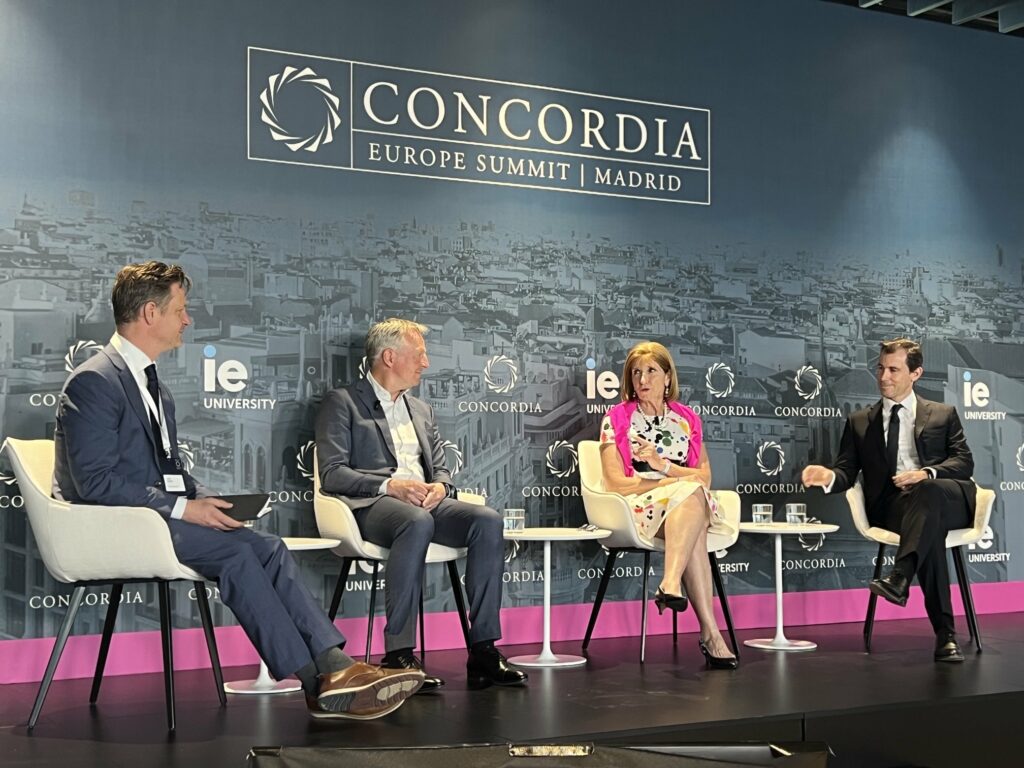
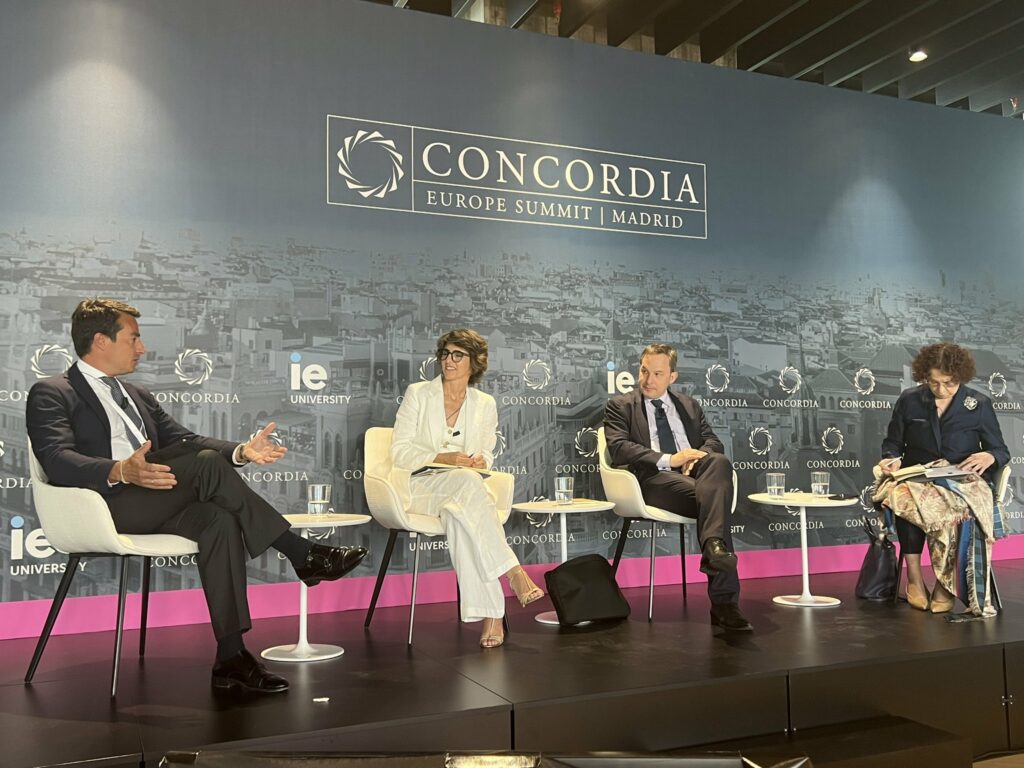
Transatlantic Diplomacy & Security and the role of Latin America
The question of transatlantic cooperation was a central topic during the Summit. The benefits of a strong and sovereign Europe for the US were highlighted by different panellists, as partnerships benefit from both parties’ strength and confidence.
A session on “Transatlantic Diplomacy & Security: Strengths and Future Opportunities” gathered Former President of Colombia Iván Duque Márquez, Spain’s Minister for Foreign Affairs José Manuel Albares, US Ambassador to Spain Julissa Reynoso, and Radoslava Stefanova from NATO.
According to José Manuel Albares, the transatlantic relationship is very important in the context of Russian aggression. The US is a natural ally of the EU and the transatlantic agenda will be at the heart of Spain’s coming EU presidency, including on the technological agenda, Mr Albares stated. In this process moving towards a Europe of defence and greater integration, the EU also needs to consider having a decision making process based on a qualified majority and not unanimity, he added.
The central role of the transatlantic alliance is also acknowledged on the other side of the Atlantic, Ambassador Reynoso contended, adding that the current President of the United States has been the one to believe in it the most in recent history. Building on this, Radoslava Stefanova reminded the audience that NATO already provides an amount of integration in military systems and procurement based on member countries’ commitments and is therefore working towards convergence.
Iván Duque Márquez addressed the opportunities created by Spain chairing the EU in offering a unifying point between Latin America and the EU. Latin America’s ecosystems are essential in the fight against climate change and the continent is a key player in energy supply, be it oil, gas, and green hydrogen but also in securing the EU’s food security. Additionally, Latin America is facing similar questions to those raised within the EU with regard to how to best approach its relationship with China, particularly in matters of trade.
Iván Duque also raised these issues in a session alongside former President of Mexico Felipe Calderón in which they discussed Latin America’s role in Global Sustainability. Iván Duque particularly highlighted the hypocrisy that makes CO2 worth 50 dollars a ton in Brussels and 5 in the Congo Basin or the Amazon. Felipe Calderon called for a real implementation of the “polluter pays” principle and a reward for absorption at equal price across the planet. “Actually funding capital costs is more important than pledges,” he added.

